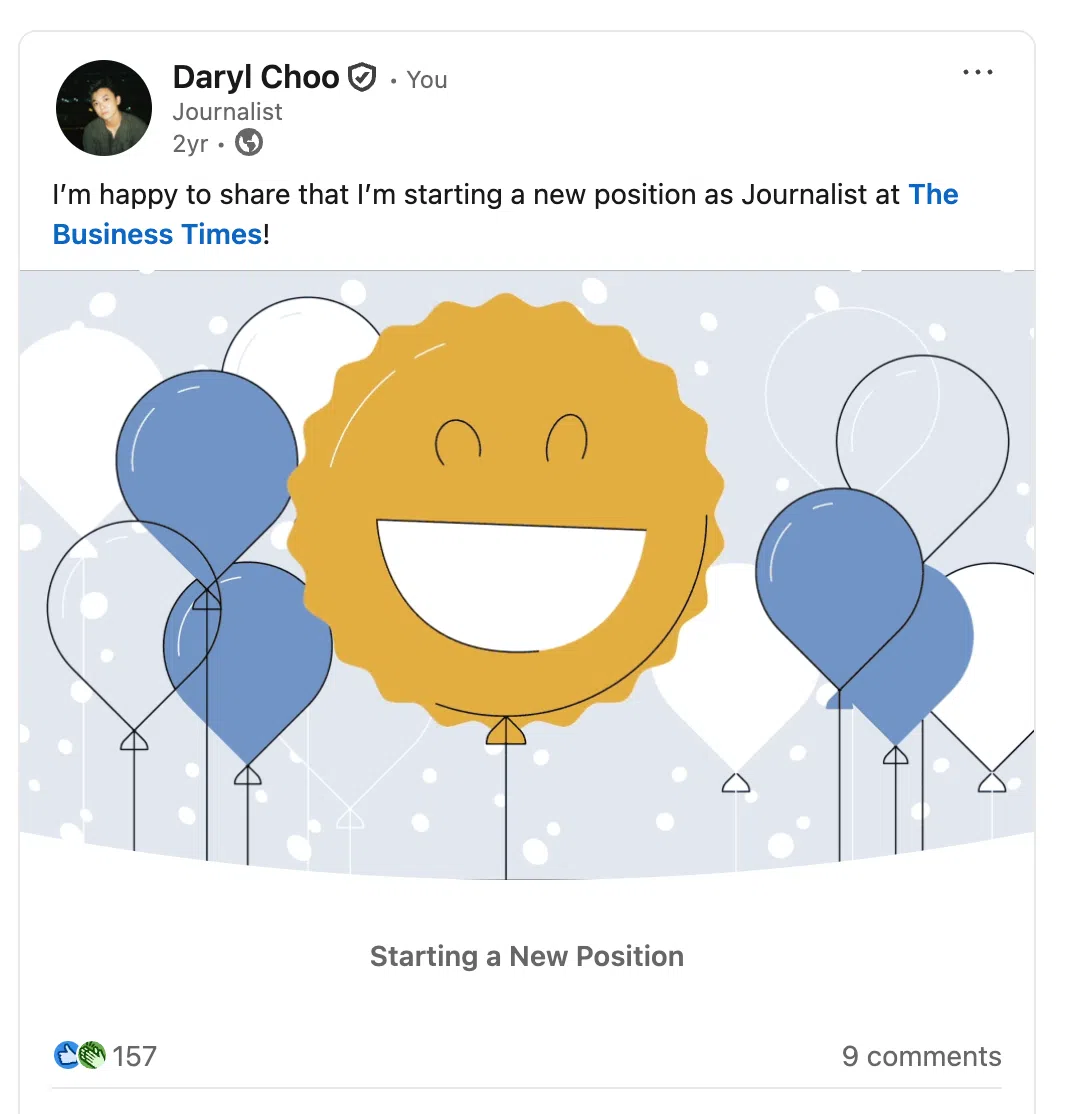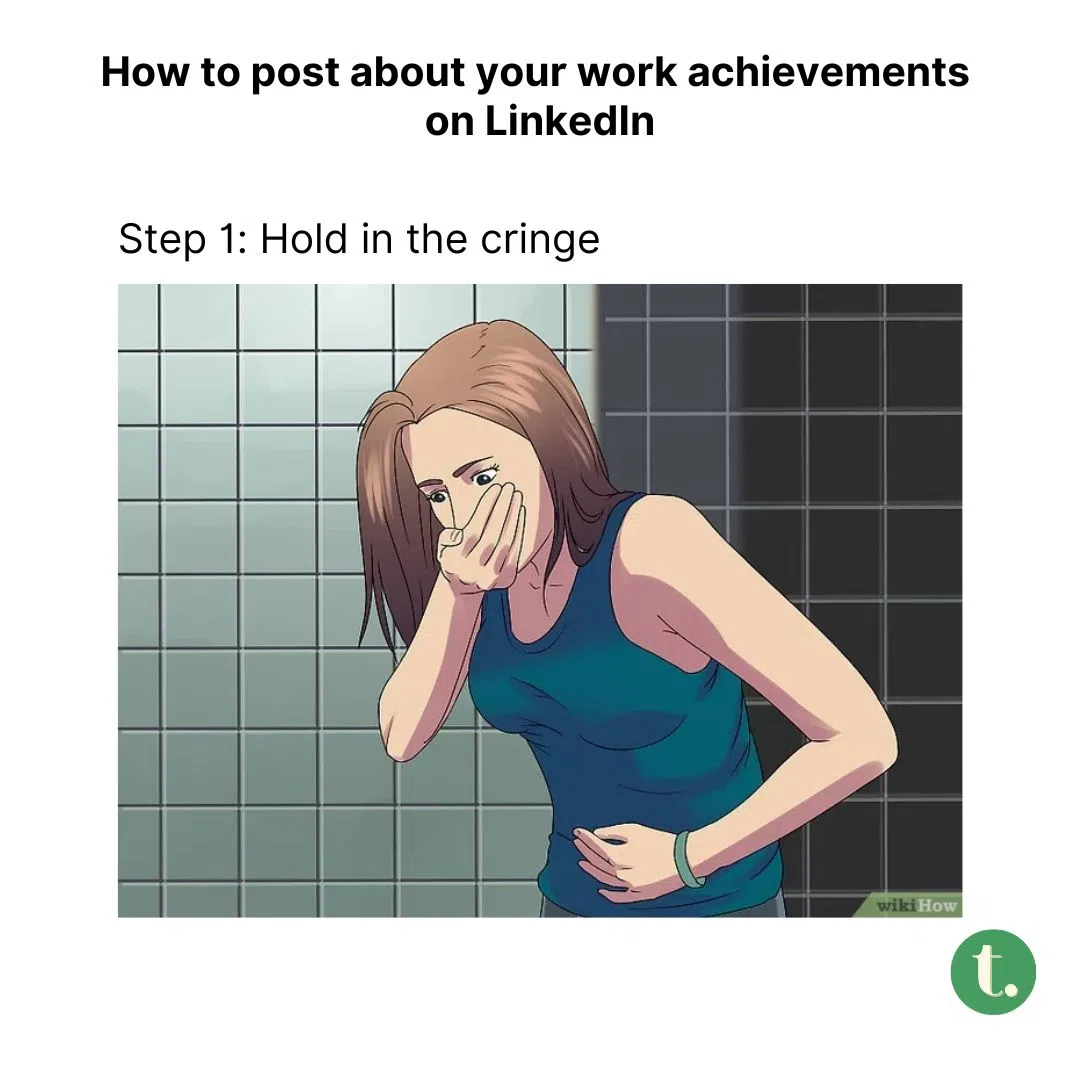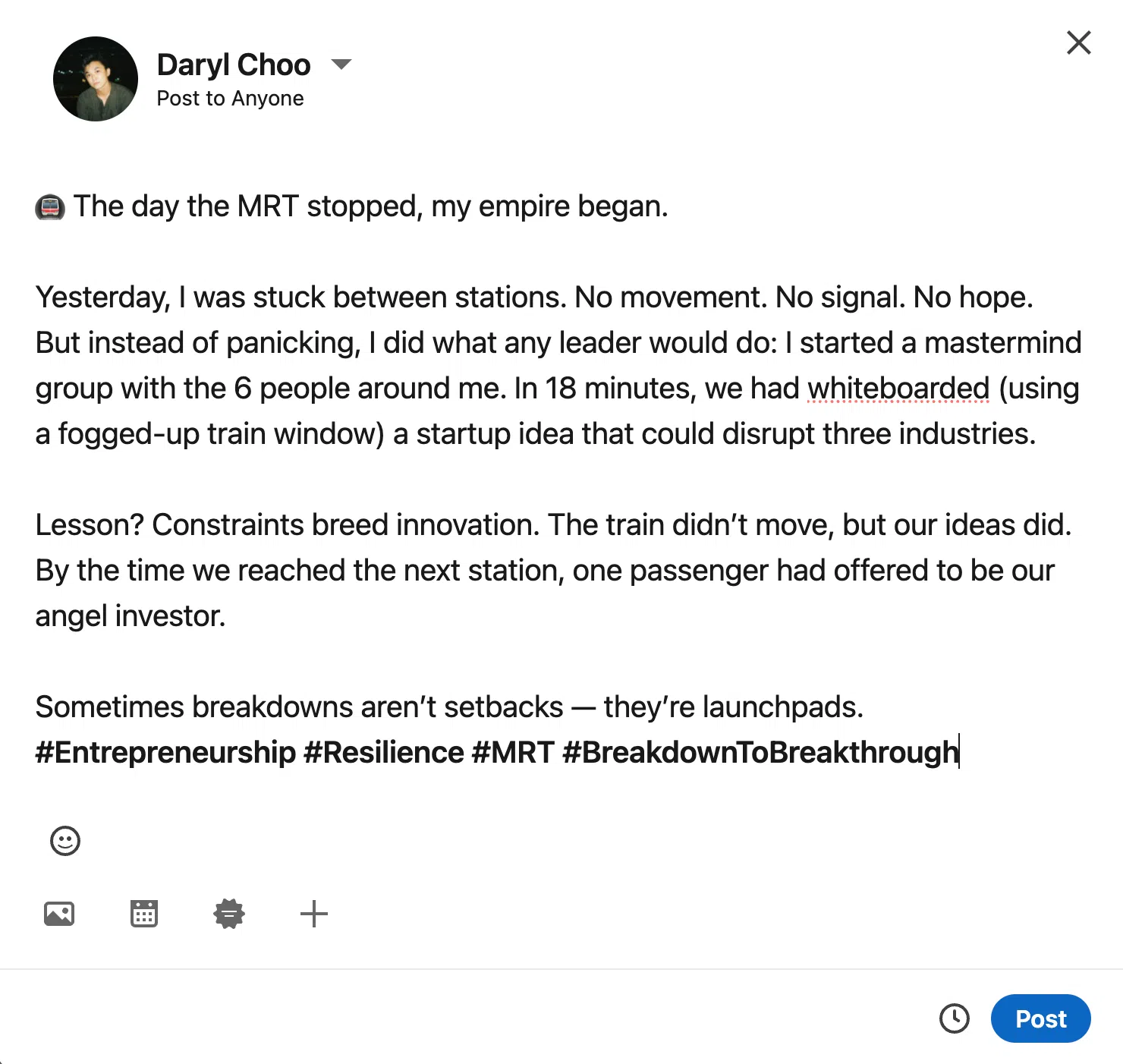Getting over the ick of self-promo on LinkedIn (Gen Z edition)

Straight to your inbox. Money, career and life hacks to help young adults stay ahead.
[SINGAPORE] In the past two-and-a-half years I’ve been at thrive, I’ve posted on LinkedIn a grand total of… one time.
For all the talk about self-promotion and building your personal brand, I’ve never felt comfortable tooting my own horn online.
Frankly, it’s cringe. But I don’t fault my friends and colleagues who do it. I know it can be a powerful career tool, but the idea of bragging sharing one’s achievements has always felt a little awkward.
Still, I can’t ignore what I’ve observed. Colleagues who share the stories they’ve written and talk about their work tend to get noticed more.
Their posts spark new connections online, and when those connections have information to share or a story to pitch, it’s them who come to mind first.
Sometimes, the loudest person on social media may not even be the most experienced on your team. But because others see them actively contributing, or at least talking about it, their reputation grows.
Navigate Asia in
a new global order
Get the insights delivered to your inbox.
I’ll admit, there have been times earlier in my career when I’ve sneered at colleagues who seemed so comfortable promoting their work on LinkedIn. I figured, if you’re really good at what you do, people will notice without you having to trumpet it yourself, right?
But the uncomfortable truth is that it very often worked in their favour. They were tapped for more projects, introduced to influential contacts and offered opportunities that might not have come their way otherwise.
It made me wonder if my own reluctance to self-promote was costing me. If I had been more visible about my work, would I be further along, too?
Perhaps, part of my hesitation is cultural. As the Financial Times notes, women business leaders feel squeamish about self-promotion because they fear being judged for “showing off”.
Now, I’m not a woman, nor a business leader. But in Singapore, there’s also that Asian virtue of modesty that’s ingrained in me. We’re taught from a young age to let our work speak for itself. But in the modern workplace, good work can easily go unnoticed.

🥷 Focus on the work
So lately I’ve been rethinking my stance and taking lessons from others as I browse LinkedIn.
The first thing I noticed was that the posts that are the least cringe resonate the most are the ones that aren’t framed as “look at me” and, instead, “look at this thing we built”.
The focus isn’t on the person (and his or her ego), but on the work itself. They frame their LinkedIn updates around the problem they were solving, the approach they took, and the outcome.
Another thing I’ve noticed is that the people who do this best often bring others into the spotlight.
When someone posts about a project and thanks the teammates who made it happen, it reads less like a humblebrag and more like a leader giving credit.
📅 Less is more
I’m also learning that frequency matters. You don’t need to flood people’s feeds to be seen. A couple of updates every few weeks or months about meaningful projects or milestones carry more weight than daily posts about work that – let’s be honest – you’re literally paid to do.
The same applies in the office. You don’t have to shout about it every time you overcome a challenge, but remember them and keep a “brag file” if you must – of client compliments, tough deadlines met, and tricky problems solved.
They’ll give you material to share in performance reviews, where you’re fully encouraged to brandish all the things you’ve accomplished.

🧼 Professional social media hygiene
Lastly, there’s the mindset shift I’m still working on: seeing self-promotion not as self-indulgence but as professional hygiene.
If no one knows what you’re doing, they can’t appreciate your contributions. And they certainly can’t connect you with opportunities. Yes, you’re raising your own profile. But in doing so, you’re making it easier for people to find you when they need your skills.
So here’s my tentative plan. I’ll start small, maybe sharing about a project I worked on or an event I’m participating in every few months on LinkedIn.
These posts will be less “what being stuck during an MRT breakdown taught me about resilience” and more “here’s the thing I did, how I did it, and the people who made it happen”.
And if I’m feeling brave, I might even ask a question to invite engagement on my post.
Will it feel awkward? Almost certainly. But then again, growth never comes from staying in your comfort zone… or so LinkedIn tells me.
What about you? Agree? Disagree? Let me know in the comments if you found this post 💡Insightful.
And after this spiel, let’s see if I end up posting about the panel for the Jobstreet-SPH Media Career Fair at Sands Expo and Convention Centre on Aug 30 that I’ll be moderating… 🤔Stay tuned.

TL;DR
- Self-promotion makes me squirm, but ignoring it could mean missing out on career opportunities
- The least “cringe” posts focus on the work and people, not just the person posting
- Avoid flooding your connections with updates on everyday tasks
- Self-promotion isn’t indulging yourself, but making it easier for people to find you when they need your skills
Decoding Asia newsletter: your guide to navigating Asia in a new global order. Sign up here to get Decoding Asia newsletter. Delivered to your inbox. Free.
Copyright SPH Media. All rights reserved.


